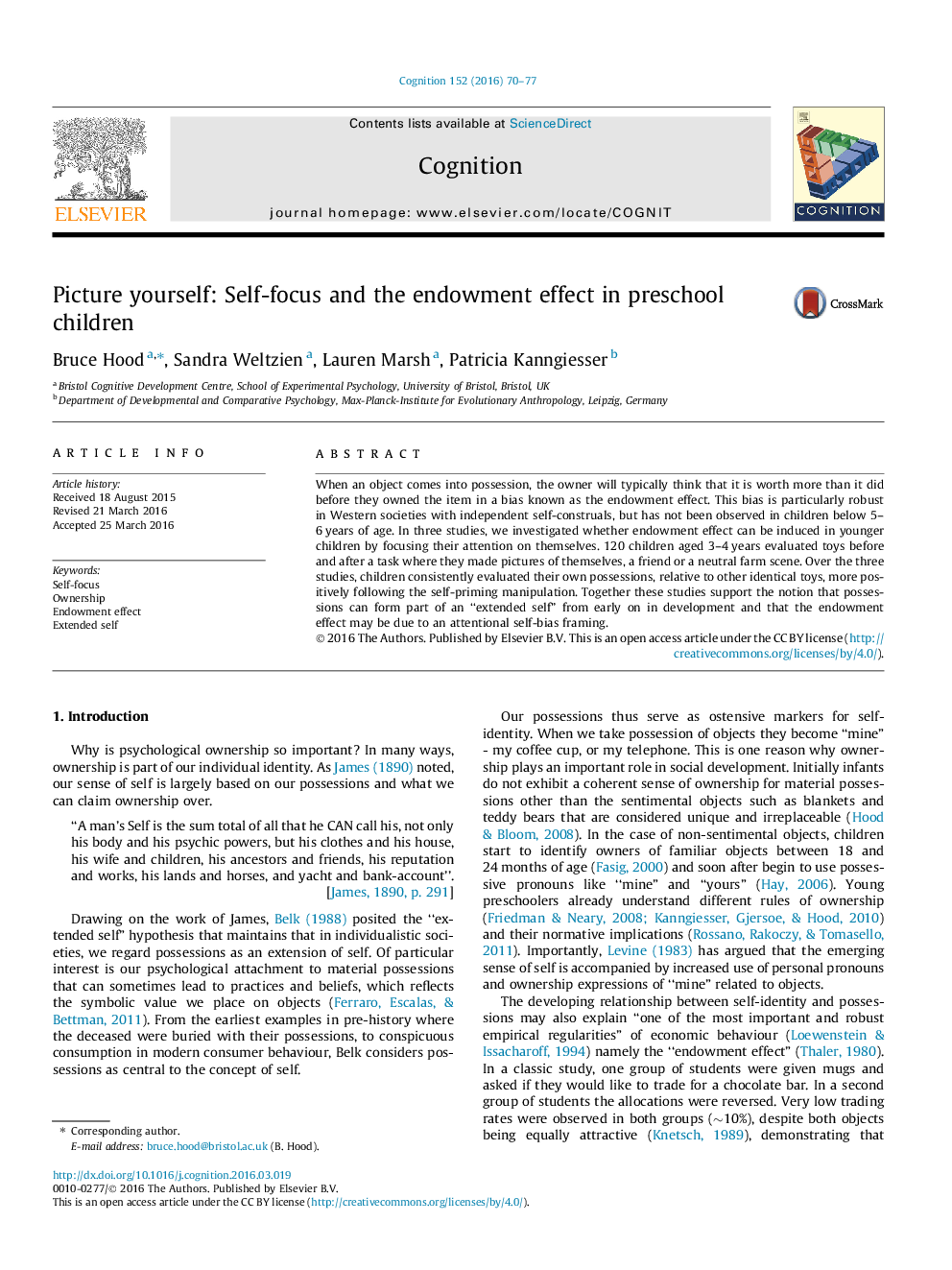| Article ID | Journal | Published Year | Pages | File Type |
|---|---|---|---|---|
| 7286154 | Cognition | 2016 | 8 Pages |
Abstract
When an object comes into possession, the owner will typically think that it is worth more than it did before they owned the item in a bias known as the endowment effect. This bias is particularly robust in Western societies with independent self-construals, but has not been observed in children below 5-6Â years of age. In three studies, we investigated whether endowment effect can be induced in younger children by focusing their attention on themselves. 120 children aged 3-4Â years evaluated toys before and after a task where they made pictures of themselves, a friend or a neutral farm scene. Over the three studies, children consistently evaluated their own possessions, relative to other identical toys, more positively following the self-priming manipulation. Together these studies support the notion that possessions can form part of an “extended self” from early on in development and that the endowment effect may be due to an attentional self-bias framing.
Related Topics
Life Sciences
Neuroscience
Cognitive Neuroscience
Authors
Bruce Hood, Sandra Weltzien, Lauren Marsh, Patricia Kanngiesser,
